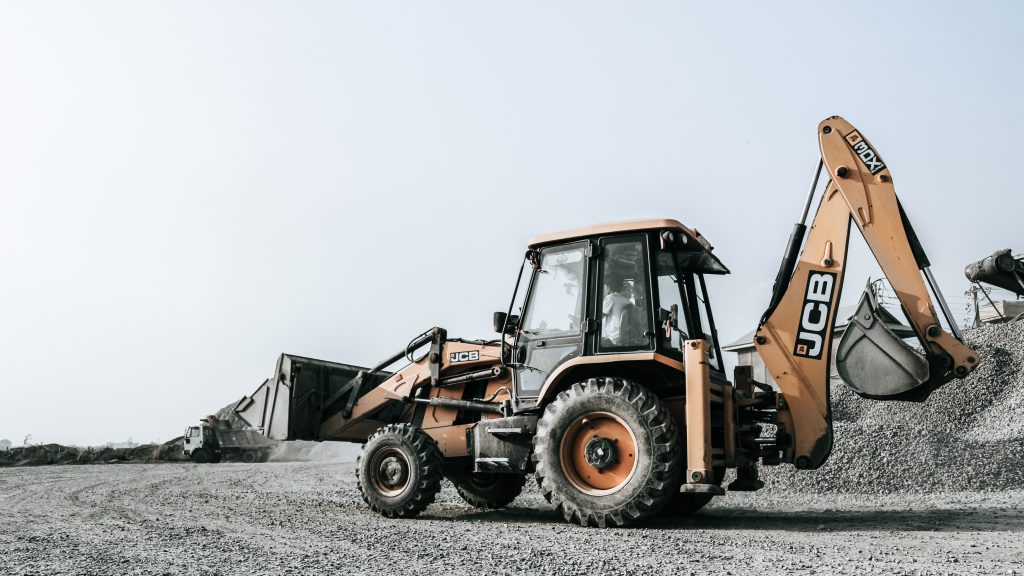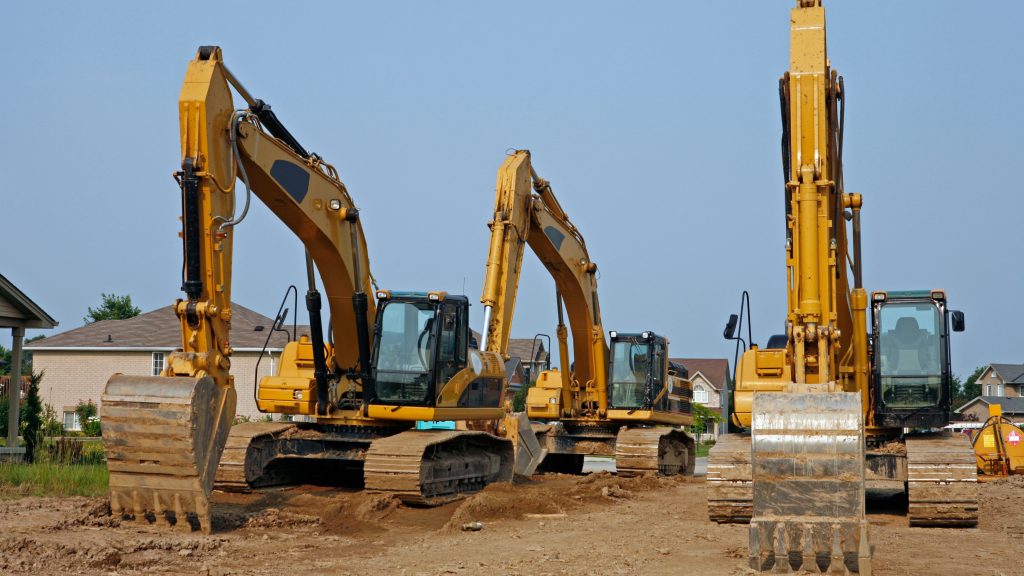The heavy equipment leasing market in West Africa has grown from €10M to €50M in just a few years! Here’s how to get into it. With tips from an industry insider!

Disclaimer: Names have been changed to protect the privacy of those involved.
A New Way to Invest
Tired of small returns from ride-hailing? Discover how Nasir turned ₦5 million into hundreds of millions by investing in heavy equipment—a strategy that many Nigerians are overlooking!
Venturing into heavy equipment investment might seem daunting, but it can be a highly profitable venture for those with the right approach. While many Nigerians are familiar with buying cars for ride-hailing services like Uber or Bolt, Nasir suggests a different path—pooling funds to purchase heavy machinery like wheel loaders and tapping into opportunities across West Africa.
Here’s how he did it and why now is the perfect time to consider this investment.
Related Articles from SimplVest:
- The Ultimate Guide to Finding Lucrative Real Estate Deals
- Diversify Your Portfolio With AI Investing
From Ride-Hailing to Heavy Equipment: Nasir’s Journey
Nasir, a Nigerian entrepreneur, was once heavily invested in ride-hailing but found the returns unsatisfying. “The competition is tough, maintenance costs are high, and cars depreciate quickly,” he says. Frustrated with small margins, he decided to explore a different opportunity—heavy equipment leasing.
“I didn’t think construction equipment could be so profitable,” Nasir recalls. “But the demand is enormous, and returns are steady.” After pooling funds with friends and purchasing a wheel loader, Nasir’s initial ₦5 million multiplied several times over, thanks to infrastructure projects across Nigeria, Benin, and Ivory Coast.

Why Heavy Equipment Leasing is a Game-Changer
Trends in Heavy Equipment Leasing Demand in West Africa (2019-2023)
| Year | Market Value (USD) | Growth Rate (%) | Key Drivers |
| 2019 | 1,907,662,680 | – | Increased mining and construction projects |
| 2020 | 2,011,476,832 | 4.3 | Economic recovery post-COVID-19 |
| 2021 | 2,587,764,938 | 28.65 | Shift towards rental solutions due to uncertainty |
| 2022 | 3,189,338,919 | 23.2 | Rising gold prices and government investments |
| 2023 | 3,500,000,000+ | 10-15 | Continued growth in agriculture and infrastructure |
The boom in infrastructure projects, especially with the African Continental Free Trade Area (AfCFTA), has increased the demand for heavy machinery across West Africa. Contractors and construction companies are eager to rent equipment like wheel loaders, excavators, and transit mixers to meet tight project timelines.
Nasir explains why: “With the AfCFTA, I can move a machine like a wheel loader to the Benin Republic, where the demand is higher, and earn around 456,000 Naira per day. This way, you could make back your initial 5 million investment within 12 days.”
And the stats agree:
- Rapid Market Growth: The heavy equipment leasing market in West Africa is on the rise. For example, JA Delmas’ rental services turnover jumped from under €10 million in 2013 to around €50 million by 2021—highlighting a strong demand.
- Mining Boost: The gold mining industry, driven by high gold prices, has significantly increased the need for rental machinery, with new projects and expansions fueling this demand.
- Economic Shifts: The uncertainty from COVID-19 led many businesses to rent equipment instead of buying, aiming to cut financial risks tied to ownership. This shift has become a broader trend in the region.
- Future Outlook: Nigeria’s equipment leasing industry is set to keep growing, with projections exceeding $10 billion and a 12.8% annual growth rate through 2026, driven by agriculture, construction, and more.
**What’s the AfCFTA? The African Continental Free Trade Area (AfCFTA) is a landmark trade agreement that aims to create the world’s largest free trade area, encompassing 55 countries across Africa.
How It Works: Pooling Funds for Heavy Machinery
For most aspiring investors, the biggest hurdle is capital. Nasir offers a practical solution: pooling funds. He gathered 10 friends, each contributing 5 million Naira, to purchase a brand-new SDLG wheel loader for about 50 million Naira. By pooling resources, they were able to access an investment that would otherwise be out of reach individually.
Nasir’s Advice: “Trust is crucial when pooling funds. It’s important to meet regularly, align financial goals, and have clear agreements about profit-sharing and decision-making. A lawyer can help draft the agreements to ensure transparency.”
Pro Tip: If you’re not ready to go big with a wheel loader, consider starting with smaller equipment like concrete mixers or transit mixers, which have a lower cost and still meet strong demand in the construction industry.
Real Returns: How Heavy Equipment Leasing Beats Ride-Hailing
Not to take a dump on it, but ride-hailing offers quick but small returns. On the other hand, heavy equipment leasing offers higher potential earnings and more stable returns. With the naira depreciating and fuel costs rising, many ride-hailing drivers struggle to make ends meet. Heavy machinery, however, holds its value over time and has a longer lifespan when well-maintained.
Nasir explains further: “When you hire out equipment like a wheel loader in countries like the Ivory Coast, you’re earning in CFA francs—a currency more stable than the naira. This makes the returns even more attractive.”
The Risks and Rewards: Handling Challenges in Equipment Leasing
Investing in heavy equipment isn’t without its challenges. Nasir warns about some common pitfalls:
- Finding Trustworthy Operators: “A bad driver can ruin your investment quickly. They know how to siphon fuel, overstate expenses, or even disappear with your machine if you’re not careful. That’s why tracking the machine’s location and usage is so important.”
- Maintenance and Repairs: Nasir stresses on the importance of a proactive maintenance plan. “Track performance, schedule regular checkups, and replace parts before they fail. That’s why I only buy refurbished machines directly from certified dealers like SMT—they offer reliable support and minimize downtime.”
- Local Market Knowledge: For Nasir, nothing is more important than understanding the local market. “In Benin, the demand for equipment is higher, but it’s less consistent. Building relationships with local contractors is crucial to securing consistent contracts.”
Taking the First Step: How You Can Get Started
“Would you rather invest in ride-hailing or heavy equipment leasing? Vote below!”
“Would you rather invest in ride-hailing or heavy equipment leasing? Vote below!”
- Option 1: Ride-Hailing – Fast growth and high demand!
- Option 2: Heavy Equipment Leasing – Stable returns and long-term contracts!
- Option 3: Both – Diversification is key!
- Option 4: Neither – I prefer other investment opportunities!
Nasir believes that anyone willing to do the research and put in the effort can succeed in this field. Here’s how to start:
- Research Equipment: Understand the types of equipment in demand, from concrete mixers to wheel loaders.
- Build a Network: Connect with contractors and construction companies in Nigeria and neighbouring countries.
- Join a Leasing Group: Consider joining a heavy equipment leasing group to reduce initial capital requirements.
- Stay Hands-On: If possible, drive the equipment yourself, especially in the early stages, to better understand the business before hiring operators. It sounds extreme, but according to Nasir, it’s the least wild thing you could do in that field.
The Time to Invest is Always Now!
Opportunities to lease heavy machinery are quickly disappearing as more infrastructure projects kick off across West Africa. With the recent push from the AfCFTA, machinery is in high demand, and investors are seeing returns skyrocket. But this window won’t last forever—more players are entering the market, and competition is heating up.
Ready to learn more about how you can pool funds and invest in business opportunities? The Monthly2K community is just what the doctor ordered!
Is Heavy Equipment Leasing Right for You?
Heavy equipment leasing isn’t for the faint-hearted, but it offers a high-reward alternative to more traditional investments. While it requires time, effort, and management, those who are willing to get their hands dirty can reap substantial rewards.
Nasir’s final advice: “If you’re ready to work hard and think outside the box, this could be the opportunity you’ve been looking for. But always remember—don’t rush, prepare well, and stay patient.”
Know someone struggling with low investment returns? Share this article with them! Tag a friend who needs to hear about this!
Dami from SimplVest 🚀🚀🚀












